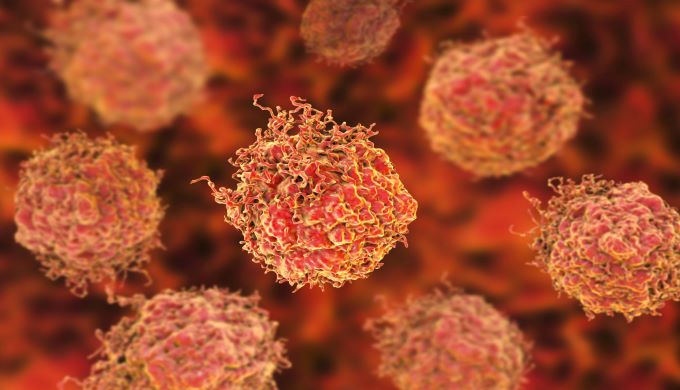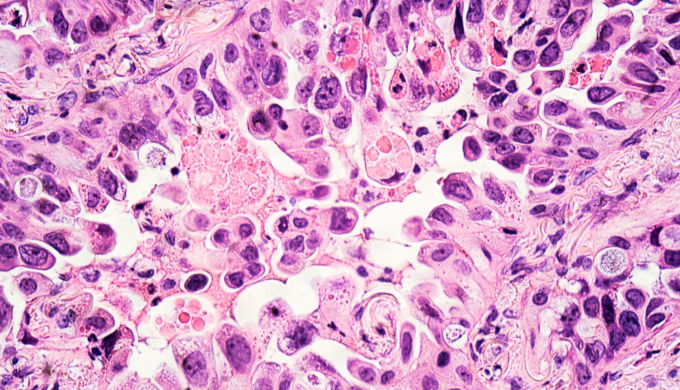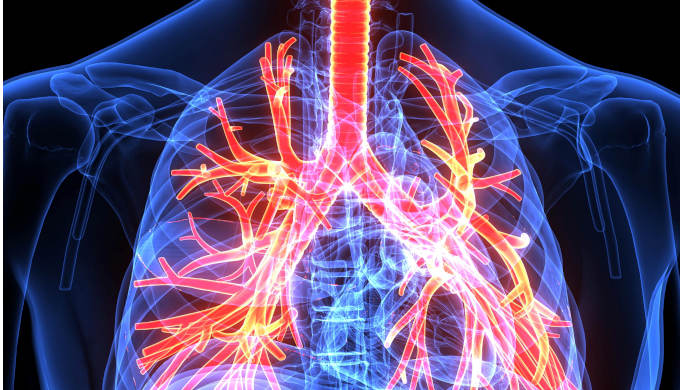Author: Laura Cowen
medwireNews: Adding the androgen receptor inhibitor darolutamide to androgen-deprivation therapy plus docetaxel significantly improves overall survival (OS) in men with metastatic hormone-sensitive prostate cancer (mHSPC), show data from the phase 3 ARASENS trial.
Furthermore, the “survival benefit was observed despite a high percentage of patients who received subsequent life-prolonging systemic therapy in the placebo group,” write Matthew Smith (Harvard Medical School, Boston, Massachusetts, USA) and colleagues in The New England Journal of Medicine.
The study findings were simultaneously presented at the 2022 ASCO Genitourinary Cancers Symposium in San Francisco, California, USA.
At 4 years, the OS rate was 62.7% among the 651 men randomly assigned to receive darolutamide 600 mg twice daily in combination with androgen deprivation therapy (ADT) and docetaxel.
By comparison, it was 50.4% among the 655 men given placebo plus ADT and docetaxel, with the resulting difference corresponding to a significant 32% lower risk for death in the darolutamide group.
Median OS was not reached in the darolutamide arm and was 48.9 months in the placebo arm.
The researchers also report that, relative to placebo, darolutamide was “associated with consistent benefits with respect to the secondary end points.” These included median time to castration-resistant prostate cancer (not reached vs 19.1 months), time to pain progression (not reached vs 27.5 months), symptomatic skeletal event-free survival time (51.2 vs 39.7 months), and time to initiation of subsequent systemic antineoplastic therapy (not reached vs 25.3 months).
The corresponding risk reductions for each of these outcomes were a significant 64%, 21%, 39%, and 61% with darolutamide versus placebo.
However, darolutamide use did not significantly shorten the time to worsening of disease-related physical symptoms or time to initiation of opioids for 7 or more consecutive days.
Adverse event (AE) rates were similar between the two groups, and were highest during the overlapping docetaxel treatment period in both groups, Smith et al note.
Grade 3 or 4 AEs occurred in 66.1% of participants given darolutamide and 63.5% of those who received placebo, with neutropenia the most common event of this severity (33.7 vs 34.2%). Serious AEs were reported in 44.8% and 42.3%, respectively, while AE-related deaths occurred in 4.1% and 4.0%. Overall, 13.5% of participants in the darolutamide group discontinued treated due to AEs, as did 10.6% of those in the placebo group.
The majority of any-grade AEs of special interest for patients receiving androgen receptor pathway inhibitors occurred at a similar rate in the two groups, with the exception of rash, at 16.6% in the darolutamide group versus 13.5% in the placebo group, and hypertension, at 13.7% versus 9.2%.
Smith and co-authors conclude that the ARASENS trial “provided clear and compelling evidence that overall survival was significantly longer among patients who received combination therapy with darolutamide, androgen-deprivation therapy, and docetaxel than among those who received androgen-deprivation therapy and docetaxel alone.”
medwireNews is an independent medical news service provided by Springer Healthcare Ltd. © 2022 Springer Healthcare Ltd, part of the Springer Nature Group
ASCO Genitourinary Cancers Symposium; San Francisco, California, USA: 17–19 February 2022
N Engl J Med 2022; doi:10.1056/NEJMoa2119115









